John McMaster will forever be indebted to the man he calls the Boss.
Sir Alex Ferguson refused to let McMaster believe his career was over after he suffered a serious knee injury against Liverpool in the European Cup in October 1980.
The injury kept McMaster out of the game for a year.
But within two years of his return McMaster had etched his name in Aberdeen’s history as a Gothenburg Great and a European Cup Winners’ Cup winner.
Ferguson had stood by his player during his recovery and McMaster remains indebted to his manager for it.
The influence of Ferguson prompted McMaster to reflect on the influence his former Dons boss had on his career for his autobiography, McMaster and Commander, which was published earlier this month (April 6).
McMaster said: “The book is not the usual warts and all account of a former player criticising old team-mates or opponents. That was never me.
“The Boss said to me when I gave him the structure of the book: ‘you’re very generous to me’ and I told him he had been generous to me and millions of others.
“It was a nice comment from him.
“Without him, I might never have gotten to all those finals and won the trophies I did.”
Tactical genius of Sir Alex was unsurpassed
McMaster’s respect for his former Aberdeen manager is apparent, but it was the psychology and tactical nous of Sir Alex which truly left a lasting impression on the 68 year-old.
He said: “He didn’t know he was doing it. If you look at leadership in the 1980s, they were called managers.
“Nowadays you have people with titles who perform that role at clubs.
“The manager didn’t mess about. It was 4-4-2 or 4-3-3.
“If you look at how he played the game he had two wingers and wanted to get the ball forward all the time and that was the bottom line.
“It came to fruition in the second leg of our quarter-final against Bayern Munich when Neale Cooper and Neil Simpson were getting flooded in midfield.
“He turned the most controversial substitution of his career into a masterstroke. He took Stuart Kennedy off which was unheard of, and sent me on.
“He put Cooper to left-back and moved big Doug Rougvie to right-back.
“He put me in with Neil Simpson to start with, then John Hewitt came on for Simmy and started running at people. I was told to start spraying balls over the top as he wanted balls in behind Bayern.
“It changed the whole game. It was amazing and remains the best tactical decision I’ve ever seen in my life.
“As substitutions go, and how important it was to the outcome of the game, it’s unbelievable.
“It cemented to me he was miles ahead of everyone else.”
Big Jock’s presence in Gothenburg was a masterstroke
The tactical genius helped overcome German giants Bayern with Alex McLeish and Hewitt scoring within a minute to give the Dons a 3-2 victory at Pittodrie.
But if the quarter-final was Ferguson’s tactical masterstroke, then the final against Real Madrid in Gothenburg was where Ferguson’s famous mind games really paid off.
The preparation for the game against Real Madrid, managed by the legendary Alfredo Di Stefano, was a huge occasion for the Dons.
But Ferguson had an ace card in the form of his own legendary figure up his sleeve in the shape of Celtic’s European Cup-winning manager Jock Stein.
McMaster said: “Big Jock was a force of nature. He wasn’t one of these guys who took prisoners. When he talked to you he looked you right in the eye.
“Fergie loved big Jock. I’ve got the picture of the two of them and I know the Boss has the picture of him and Mr Stein in his office – he was a genius as well.
“Who would have thought Jock Stein would win nine league titles and someone would beat him? It had to be the Boss.
“Inviting him out to Gothenburg with the team was a masterstroke and big Jock had some great advice for the Boss.
“He told the Boss to give Mr Di Stefano a nice box of whisky and he would be his friend forever.
“We both trained at the stadium the day before the final and the Boss took big Jock in with us as if he was part and parcel of the team and it worked a treat as the Real Madrid players were in awe of him.”
‘We destroyed Real Madrid 1-1’
The Dons would not be denied on their date with destiny, with super-sub Hewitt delivering the goods – as he had done at Pittodrie against Bayern – by coming off the bench to head home the winner in extra-time.
McMaster remains in no doubt the right team won – and it seems for some Aberdeen’s chances of going all the way had been predicted from the first hurdle.
He said: “It was meant to happen. The Sion chairman was convinced we could do it as early as the preliminary round.
“We destroyed them 11-1 on aggregate and he said we had a chance of winning the cup as he liked the way we go about our job and the way the team and manager operated.
“He thought we were well coached and a very formidable team.
“Normally you would win by a goal or two, but we were a team which always went for the throat. We couldn’t play any other way.
“We were meant to beat that mob in the final and we should have done it within the 90 minutes.
“We hammered them 1-1 in the 90 minutes and there was no doubt we deserved to win long before Hewitt got the winner in extra-time.”
Dons dressing room had no cliques
Once Hewitt’s header hit the net Aberdeen’s place in Scottish history was assured.
Looking back on those halcyon days McMaster believes there is no secret to Aberdeen’s glorious period of success.
He said: “When the young boys Cooper, Simpson, Hewitt, Eric Black, Ian Porteous, Ian Angus and Andy Watson came through, we got together as a squad.
“We had a good mix of young lads and senior players, as well as a mixture of east coast and west coast boys.
“But we had all come from our local schemes. That’s what made us the same. It was the same with the great European trophy-winning teams which Rangers and Celtic had.
“We didn’t have one guy who forgot where we came from. We were brought up the same.”
Class of 1983’s spirit remains as strong as ever in 2023
McMaster and his team-mates will return to Pittodrie to celebrate the 40th anniversary of the club’s greatest achievement and he insists the bond is as strong today as it was all those years ago.
He said: “We’ve got a Whatsapp group, which is very funny. Simmy (Neil Simpson) is the director of it.
“He gets all the memorable dates, birthdays and topics and keeps everyone involved.
“It was a godsend during the pandemic and, even if you didn’t take part in every conversation, it was great to read through the messages and see the same camaraderie from all those years ago.
“Nothing has changed.
“We were all leaders ourselves on the park as well, but we all saw our role as keeping the player opposite us out of the game and to give them a problem. Everyone had a job to do on the park.
“It was a pleasure to play for that team as every time I was on the ball I had an option in Mark McGhee, Eric Black, Hewitt, Gordon Strachan, Peter Weir and Willie Miller.
“We hardly ever passed the ball backwards.
“When you see the body language of modern day footballers, I find games so boring it’s unreal. I’m not a lover of the theory you need to keep possession better, put it that way.
“Even at youth level players are too willing to turn backwards and the coaching is to blame for that. Possession is false if you’re not doing anything with the ball.
“When we were playing, could you imagine me saying to Willie Miller or Alex McLeish: ‘I’m going to protect you two today?’
“I’d have received a boot up the backside from both of them.
“We knew our strengths and played to them and that’s always the way to play as far as I’m concerned.”
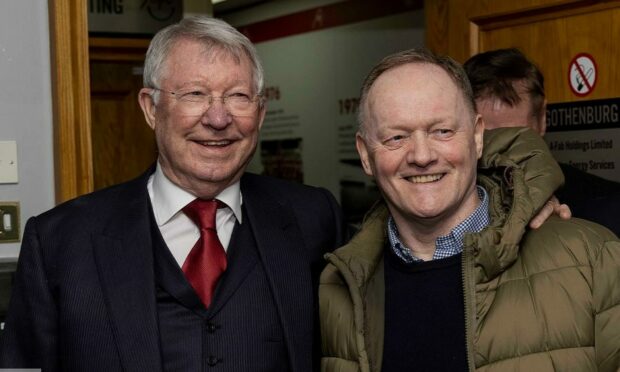
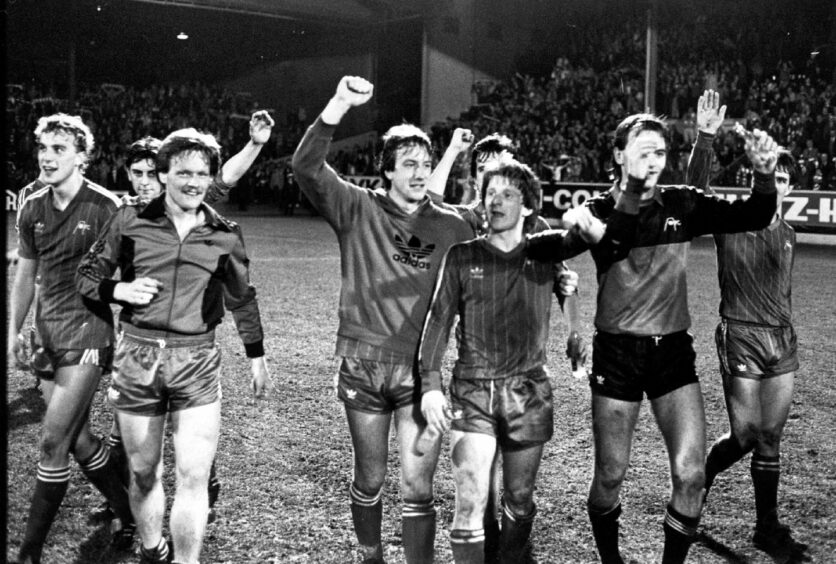
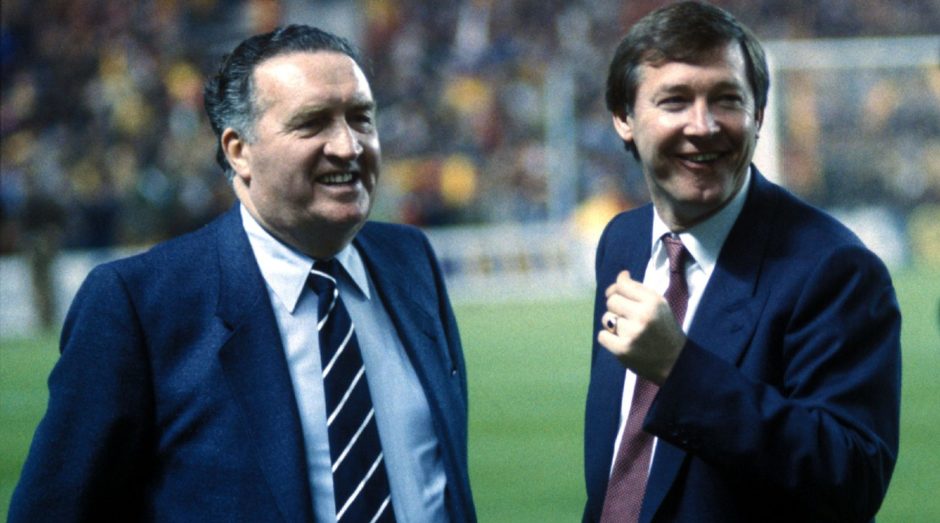
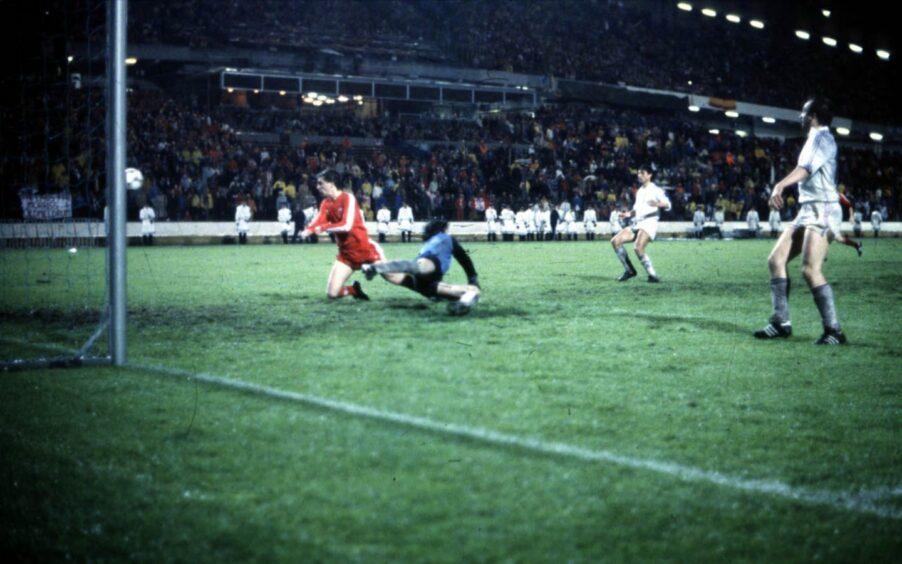
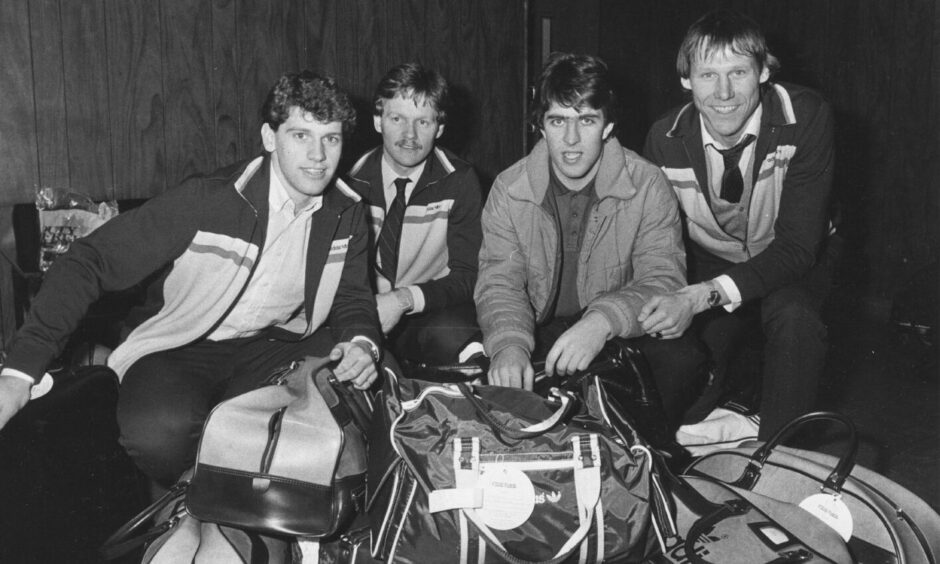
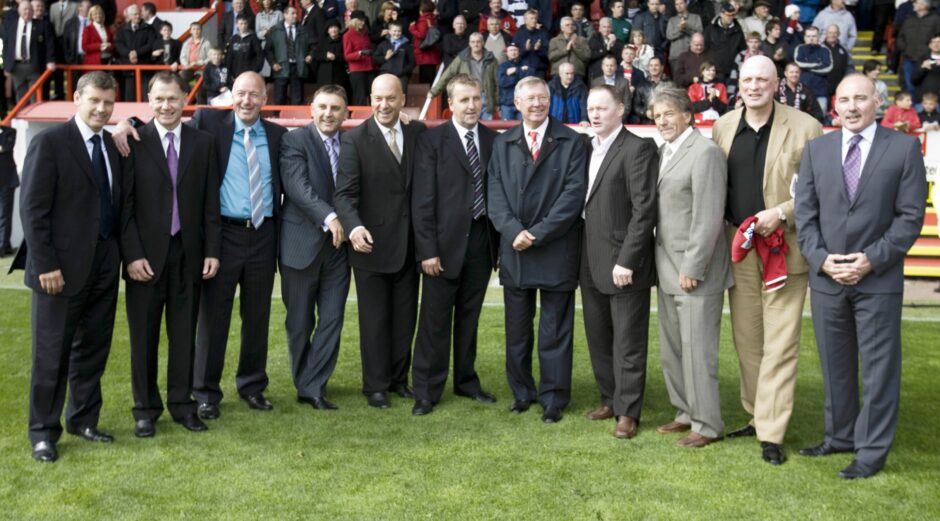
Conversation